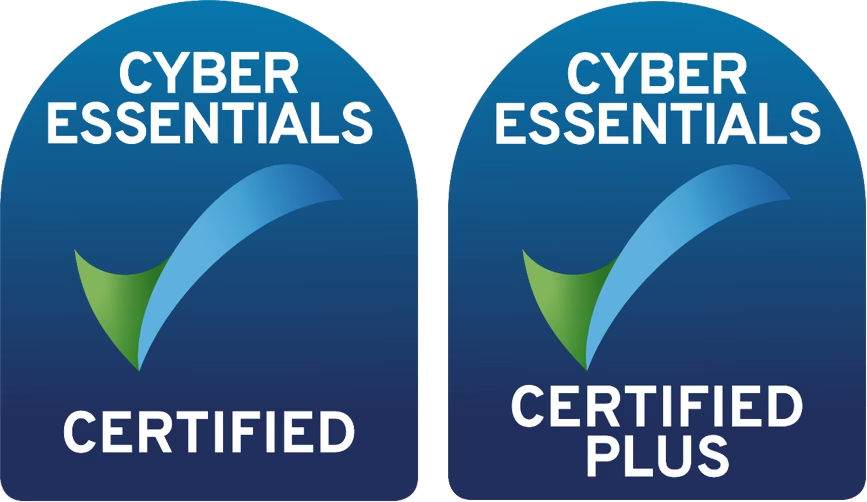ChatGPT: The New Tool of Choice for Hackers
Europol, the European Union’s law enforcement agency, has warned that hackers are using ChatGPT, a language model chatbot developed by OpenAI, to conduct cyber attacks.
Europol’s warning comes as ChatGPT has become increasingly popular. The chatbot has been praised for its ability to generate realistic and grammatically correct text, and it has been used by a wide range of users, including businesses, journalists, and students.
However, ChatGPT’s popularity has also made it a target for hackers. The chatbot’s ability to generate realistic text, video and websites makes it easy for hackers to create phishing emails, fake videos and fake websites that are difficult to distinguish from legitimate ones.
What is ChatGPT?

ChatGPT is a large language model chatbot developed by OpenAI. It is trained on a massive dataset of text and code, and can generate text, translate languages, write different kinds of creative content, and answer your questions in an informative way.
ChatGPT is a powerful tool that can be used for a variety of purposes, both good and bad. It can be used to generate realistic and engaging content, translate languages, and write different kinds of creative text formats. However, it can also be used to create phishing emails, fake websites, and other forms of malicious content.
It is important to be aware of the risks associated with ChatGPT and other large language models.
These models can be used to create content that is difficult to distinguish from legitimate content, and they can be used to spread misinformation and propaganda.
It is important to be careful about what information you share online, and to be suspicious of any emails or websites that ask for personal information.
If you think you have been the victim of a ChatGPT cyber attack, you should report it to the police and to your bank or credit card company. You should also change all of your passwords and enable two-factor authentication for all of your online accounts.
It is important to be aware of the risks associated with this tool, but it is also important to recognize its potential benefits. With careful use, ChatGPT can be a valuable tool for communication, creativity, and business.
How ChatGPT Can Be Used for Cyber Attacks
ChatGPT can be used for cyber attacks in a number of ways. For example, it can be used to generate phishing emails that look like they are from legitimate companies.
These emails can contain malicious links that, when clicked on, can infect the user’s computer with malware. ChatGPT can also be used to create fake websites that look like they are from legitimate companies. These websites can collect personal information from users, such as their credit card numbers or passwords.
ChatGPT can also be used to generate spam messages that are sent to a large number of people. These messages can contain malicious links or attachments that can infect users’ computers with malware.
In addition to these traditional cyber attacks, ChatGPT can also be used to launch more sophisticated attacks.
For example, it can be used to generate deepfake videos that are designed to manipulate public opinion. These videos can be used to spread misinformation or to damage the reputation of a person or organization.
ChatGPT can also be used to generate fake news articles that are designed to mislead people. These articles can be used to spread propaganda or to destabilize a country.
The use of ChatGPT for cyber attacks is a growing threat. It is important to be aware of the risks associated with this technology and to take steps to protect yourself and your business from being victimized.
The Risks of ChatGPT
As ChatGPT continues to develop, it is likely that its risks will only increase. It is important to be aware of these risks.
The best way is to be aware of the risks and to take steps to protect yourself. Here are some tips:
- Be careful about what information you share online. ChatGPT can be used to create fake news articles or social media posts that look like they are from legitimate sources. If you see something that looks too good to be true, it probably is.
- Be suspicious of any emails or websites that ask for personal information. ChatGPT can be used to create phishing emails that look like they are from legitimate companies. These emails can contain malicious links that, when clicked on, can infect your computer with malware.
- Enable two-factor authentication for all of your online accounts. This will add an extra layer of security to your accounts, making it more difficult for scammers to access them even if they manage to steal your password.
- Keep your software up to date. Software updates often include security patches that can help protect your computer from malware.
- Use a password manager to generate and store strong passwords. This will help you create strong passwords for all of your online accounts, making it more difficult for scammers to guess them.
- Be aware of deepfakes. Deepfakes are videos that have been manipulated using artificial intelligence to make it look like someone is saying or doing something they never actually said or did.
- Be skeptical of what you see online. Just because something looks like a real video doesn’t mean it is. If you see a video that seems too good to be true, it probably is.
- Do your research. If you’re not sure whether a video is real or fake, do some research to find out more information about it.
- Use critical thinking skills. When you’re watching a video, ask yourself who created it, what their purpose is, and why they’re sharing it. If you can’t answer these questions, it’s probably best to avoid it.
- Stay informed. Keep up with the latest news and developments about deepfakes so you can stay ahead of the curve.
By following these tips, you can help protect yourself and your business from being fooled by cybercrime.
Here are some additional tips:
- Be aware of the latest scams. ChatGPT is a new technology, and scammers are always looking for new ways to exploit it. Stay up-to-date on the latest scams so you can avoid them.
- Be careful about what you click on. Scammers often use phishing emails or fake websites to trick people into clicking on malicious links. If you see something that looks suspicious, don’t click on it.
- Be careful about what you download. Scammers often try to trick people into downloading malware by sending them malicious files. Only download files from trusted sources.
- Be careful about what you share. Scammers can use the information you share online to steal your identity or commit other crimes. Be careful about what you share, and only share information with people you trust.
If you think you or your business may have been a victim to Cyber Crime, you can report fraud and cyber crime to the following authorities:
- Action Fraud: This is the UK’s national reporting centre for fraud and cyber crime. You can report fraud and cyber crime online or by calling 0300 123 2040.
- The City of London Police: This is the police force that covers the City of London, which is the financial district of London. You can report fraud and cyber crime to the City of London Police online or by calling 020 7601 2121.
- The National Crime Agency (NCA): This is the UK’s national law enforcement agency that tackles serious and organised crime. You can report fraud and cyber crime to the NCA online or by calling 0370 484 3000.
ChatGPT is a sophisticated AI-powered chatbot that poses a looming threat to our cyber security. As AI technology becomes more advanced, it will become increasingly difficult to distinguish between ChatGPT and a human. This means that ChatGPT could be used to carry out a variety of malicious attacks, including phishing scams, social engineering attacks, and malware attacks.
Businesses and individuals must take proactive action to protect themselves from ChatGPT and other sophisticated AI-powered threats. This includes implementing strong cyber security measures, such as two-factor authentication, password managers, and firewalls. Additionally, it is important to be aware of the latest cyber security threats and how to protect yourself from them.
You can read more about them here : WatchGuard’s 2023 Cybersecurity PredictionsIf you are concerned about the security of your business, please contact our cyber security experts for a free consultation.
Contact us to Schedule your Free Consultation!
With over 15 years at Speedster IT, I’ve built a career around helping businesses navigate the evolving world of technology. I publish all the content for the IT Support London Blog and Cyber Security Blog, where I share practical insights on infrastructure upgrades, cybersecurity trends, and smart IT strategies for growing companies.
